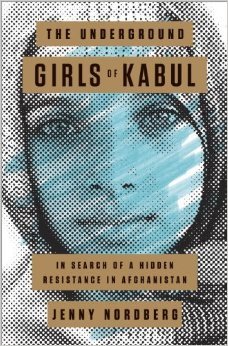Imagine living in a society where girls are not valued. In fact, they are property and subject to the whims of the males in their lives. Where they go from father to husband and never have a say in what happens. This isn't a fairytale. It's a reality in Afghanistan, even after the removal of the Taliban.
When Nordberg goes to Afghanistan she expects to find out about the lives of women. What she doesn't expect to find is an underground movement of women who are posing as men. And it's something everybody knows but doesn't speak on. More commonly found in pre-pubescent girls, it has become custom to turn a girl into a boy either for running errands, helping in a shop, or to give luck that a boy will be born next. The girls are normally returned to being their birth gender before puberty starts and they are married. But there are a few exceptions.
It's hard to imagine changing yourself into a different person to be integrated in society and have freedom of movement but that is exactly what happens in Afghan culture. Whether it is for necessity to survive and get an income or because there is shame from having all girls, the reasons are varied but all widely accepted. Nordberg does a great job of showing the different personalities of the girls that have been boys for awhile and their history. It was interesting to read about how they handled the transition back (if they transitioned) and how it set them up for the rest of their lives. The different reactions of people to her was telling as well, because as a foreigner she had a lot of freedom compared to most, but was still treated differently based on her gender.
The reporting in this book was handled very well. Nordberg researched, talked to many people, and got the different sides of everything. Pretty standard, but sadly not something that happens with a lot of journalists anymore. I think the attention she paid to the leads and as in-depth as she went in her reporting was remarkable. Especially considering she was in a closed-society that doesn't encourage outsiders to make contact with women. Sure, it probably helped she was a woman herself, but it's still a difficult culture to navigate and get answers. Which makes this view pretty important. Her take of the situation, that not just women should be being helped, but the men who encourage education in women should be helped as well, is an important thought and one frequently overlooked. And the stories are engaging and well written, done in a professional way but still having a lot of detail. I could have kept reading if there was more.
I think this is a great book that shows a hidden side of Afghan culture that could be key to improving lives for women over there. I definitely recommend this book for anyone interested in women's studies or Afghan culture.
**This book was received in a Goodreads Giveaway**
The Underground Girls of Kabul
Copyright 2014
333 pages


No comments:
Post a Comment